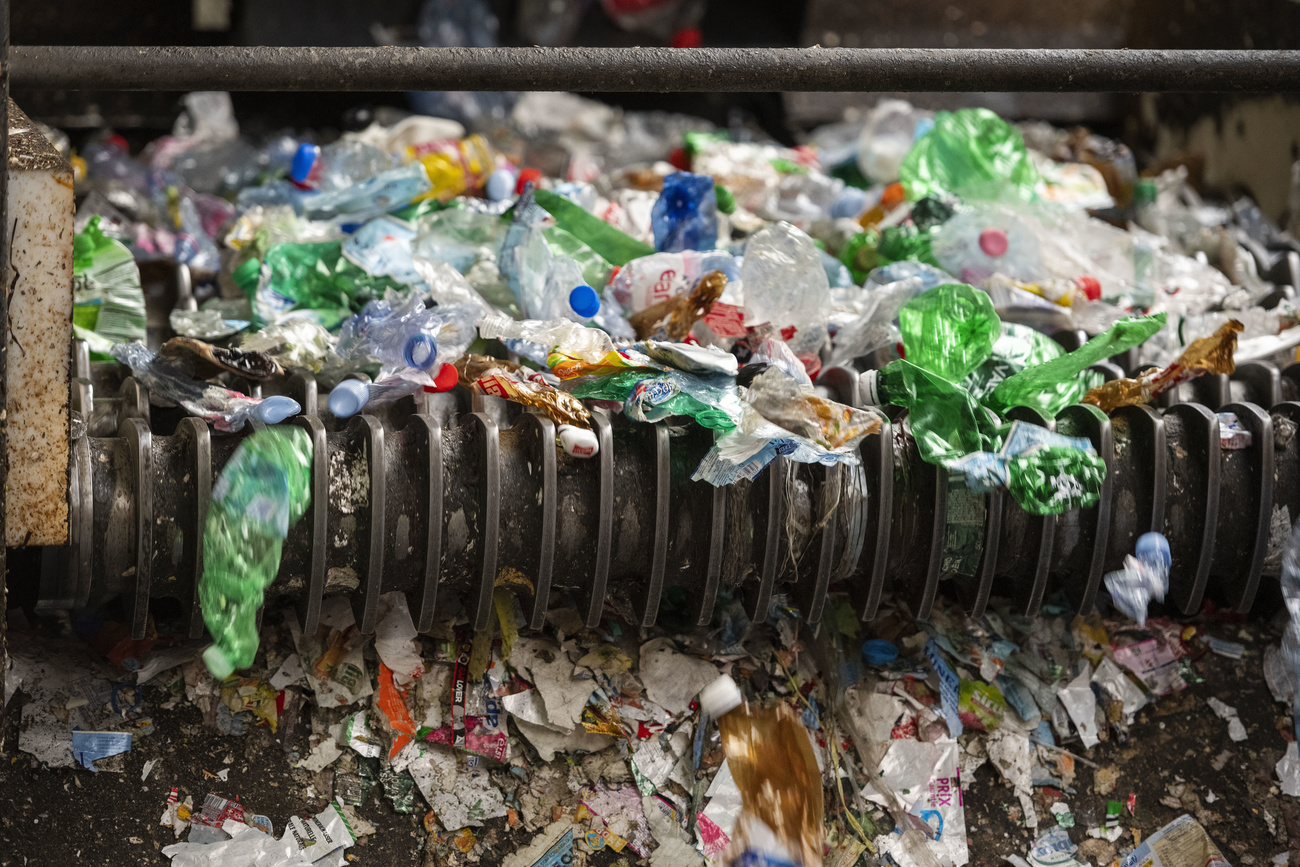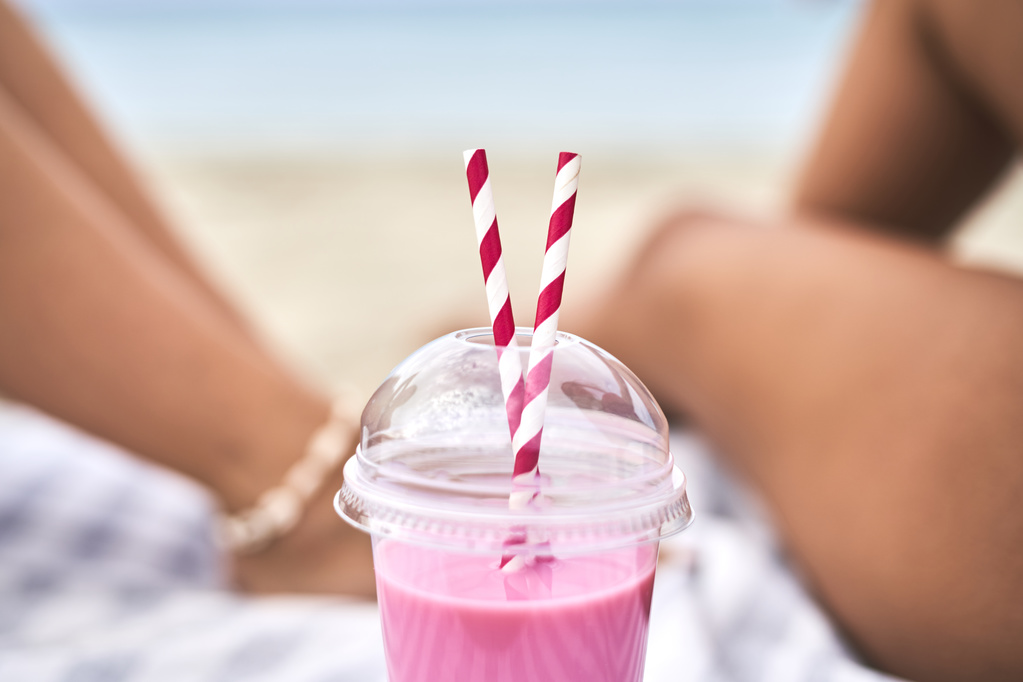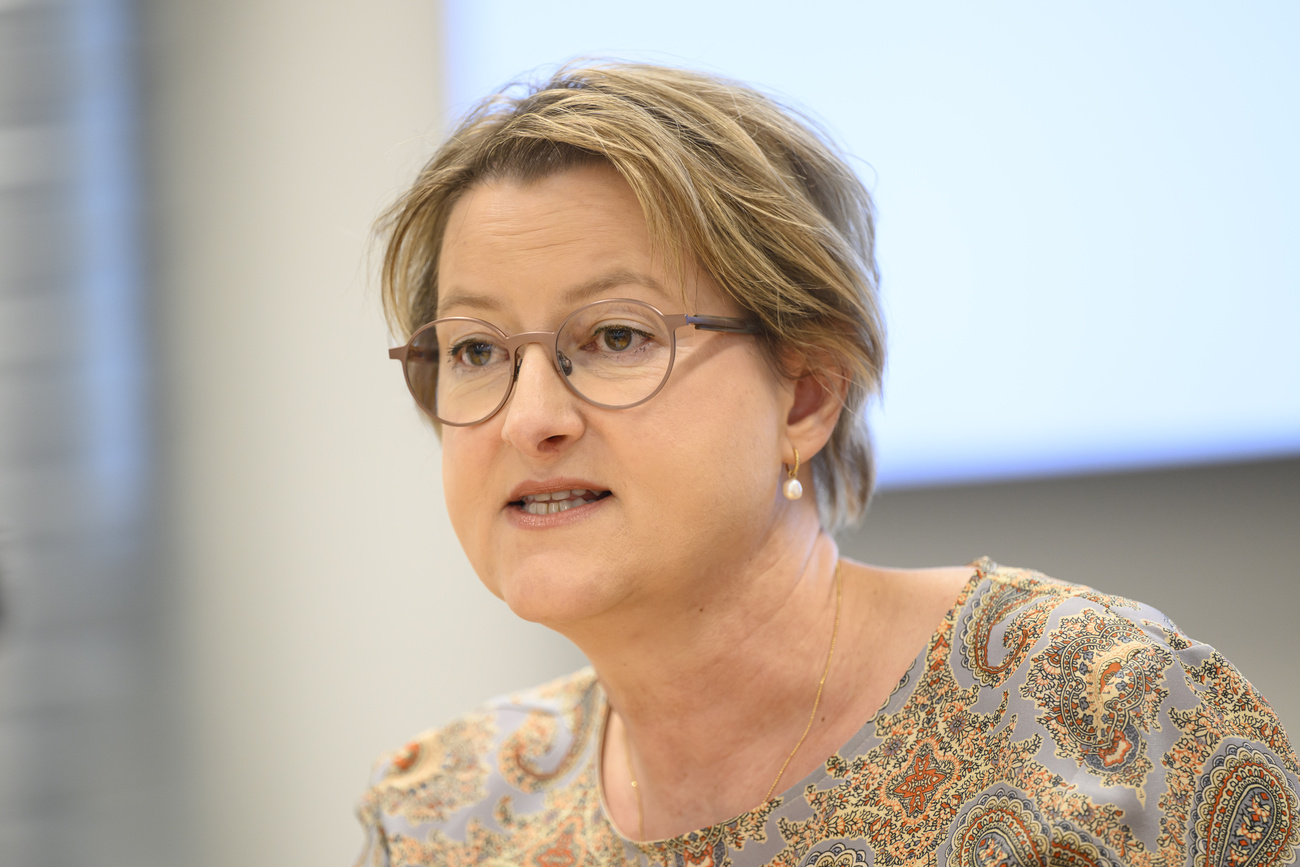
Swiss cities given mixed ratings for recycling plastic packaging

Efforts to improve plastic recycling in Switzerland have shown a mixed bag of results among cities and towns, ranging from “exemplary” to “no significant effort”.
Greenpeace Switzerland conducted a studyExternal link on single-use packaging and other disposable plastic products. Basel achieves a near perfect score of 5.5 out of 6, but five cities only muster a score of 2.
Each year, the average Swiss resident generates nearly 100kg of plastic waste – more than three times as much as the European average. Only 25% of plastic waste is recycled, a figure well behind other European countries.
Despite some recent measures, such as shops charging customers for plastic bags, Switzerland has no plans to copy the European Union’s plan to ensure that all plastic packaging is recyclable.
The amount of poorly disposed plastic is blighting the Alpine nation. A 2019 study measuring plastic pollution found that the concentration of microplastic in Lake Geneva was as high as in the world’s oceans.
Urged to improve
Greenpeace looked at a range of criteria for compiling its recycling performance list. These include official recycling policy set by each city, the amount of plastic handed out by takeaways and whether there are bans on using plastic crockery and cups in public spaces.
Basel and the Swiss capital, Bern, stand out as good performers. However, Zurich and Geneva feature in the lower reaches of the league table. The study does note, however, that Neuchâtel and Geneva have recently announced new recycling measures that are too late to be included in the study.
Switzerland is Europe’s fourth-largest producer of waste per head of population, says Greenpeace. The environmental NGO has urged Switzerland to improve its record.

More
Swiss to keep sipping from single-use plastics as EU ban takes effect

In compliance with the JTI standards
More: SWI swissinfo.ch certified by the Journalism Trust Initiative






























You can find an overview of ongoing debates with our journalists here . Please join us!
If you want to start a conversation about a topic raised in this article or want to report factual errors, email us at english@swissinfo.ch.